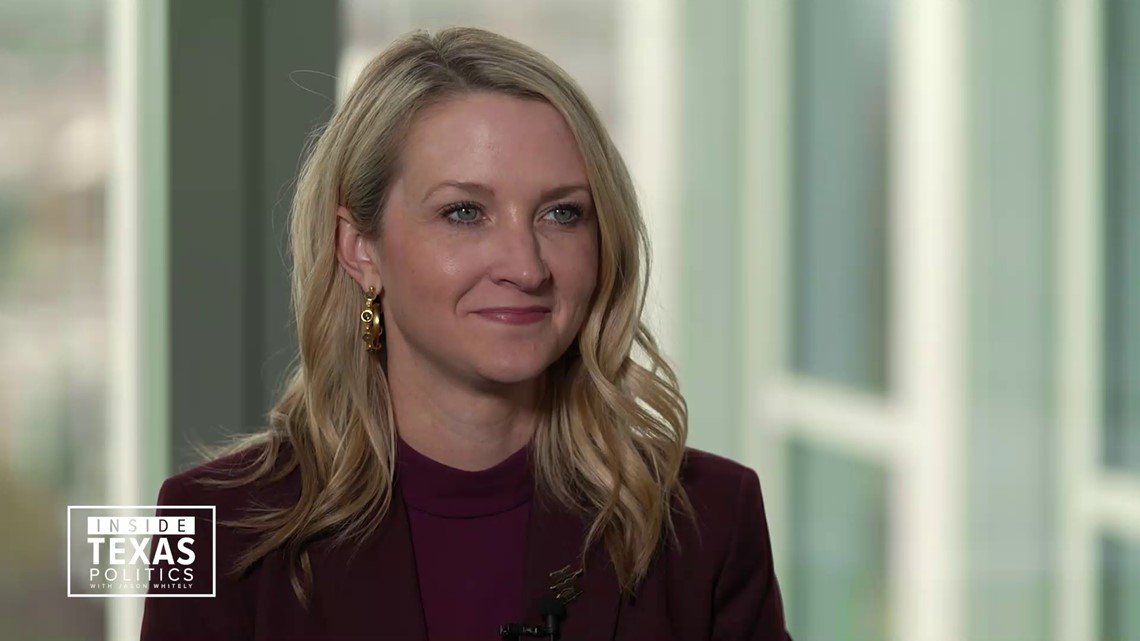Health
Salmonella Scare in Eggs Sparks Multi State Health Alert and Massive Recall
Over 1.7 million eggs recalled across nine states as 79 people fall sick and 21 are hospitalized in salmonella outbreak

A widespread salmonella outbreak linked to recalled eggs has raised serious public health concerns across the United States. According to the Centers for Disease Control and Prevention (CDC), at least 79 individuals in seven states have fallen ill, with 21 hospitalizations reported as a direct result of exposure to contaminated eggs.
The August Egg Company, at the heart of the recall, has voluntarily pulled back approximately 1.7 million brown cage-free and organic eggs distributed between February 3 and May 15, 2025. These eggs were sold in major grocery chains including Walmart, Save Mart, Safeway, Smart & Final, and Food 4 Less, spanning across states like California, Nevada, Illinois, Indiana, Nebraska, New Mexico, Washington, Arizona, and Wyoming.
The sell-by dates on the affected eggs range from March 4 to June 19, 2025, and consumers are being strongly urged to check their fridges. The CDC recommends disposing of the recalled eggs immediately or returning them to the store of purchase. Furthermore, any surfaces or utensils that may have come into contact with these eggs should be thoroughly disinfected.
What Is Salmonella and Why Is It Dangerous?
Salmonella is a bacteria that can cause severe foodborne illness. According to the FDA, symptoms typically begin 12 to 72 hours after infection and include fever, diarrhea, vomiting, abdominal cramps, and dehydration. While most people recover within a week, the infection can become severe or even fatal in young children, older adults, pregnant women, and those with weakened immune systems.
The bacterium can also lead to bloodstream infections if not treated in time, and in rare cases, death. In light of the current outbreak, the CDC has stressed the importance of safe egg handling practices, especially as summer gatherings and picnics increase the risk of improper storage and preparation.
Keeping Eggs Safe – What You Can Do
To reduce the risk of foodborne illness, consumers are advised to:
- Buy only refrigerated eggs and inspect for cracks or dirt before purchasing.
- Refrigerate eggs at or below 40°F (4°C) immediately after bringing them home.
- Cook eggs until both the white and yolk are firm, and avoid runny preparations.
- Use pasteurized eggs when making recipes that call for raw or undercooked eggs (e.g., Caesar dressing, homemade ice cream).
- Wash hands, surfaces, and utensils thoroughly with soap and hot water after handling raw eggs.
- Use insulated coolers and ice packs when transporting egg-based dishes outdoors.
This incident also highlights the broader issue of rising food recalls in 2025, ranging from bacterial contamination to allergen mislabeling. As food sensitivities and immune vulnerabilities increase in the population, both awareness and prevention are key.
Food
Can Chocolate and Tea Really Help Your Heart Scientists Just Gave the Green Light
New research confirms your favorite indulgences—dark chocolate, tea, apples, and grapes—may be powerful allies for lowering blood pressure and aging better.

For years, health experts have warned us against too much sugar, caffeine, and indulgence—but what if science just told us that some of our favorite treats could actually help our heart? According to a groundbreaking meta-analysis published in the European Journal of Preventive Cardiology, that comforting cup of tea or square of dark chocolate may be doing more than just lifting your mood—it might be improving your cardiovascular health too.
The research, conducted by scientists at the University of Surrey, analyzed 145 previous studies and found consistent evidence that flavan-3-ols, a group of naturally occurring compounds found in foods like tea, dark chocolate, apples, and grapes, can significantly reduce blood pressure. In fact, the blood pressure-lowering effects were comparable to some common medications when consumed regularly. That’s right—your tea habit might just be as beneficial as your prescription (though doctors insist it should never replace one).

“These findings are incredibly promising,” said Professor Christian Heiss, one of the study’s lead authors and a cardiovascular medicine expert. “For those looking to support their heart health, making simple dietary changes—like drinking tea or eating apples—can be an accessible and enjoyable step in the right direction.” But he also clarified: these foods should complement, not replace, medical treatment for conditions like hypertension.
And the benefits don’t stop at blood pressure. Another research team—from Edith Cowan University, Queen’s University Belfast, and Harvard—found that diets high in flavonoids also support healthy aging. These compounds are believed to reduce inflammation, boost blood vessel function, and even help maintain muscle mass—all essential for physical and mental health as we grow older. Their study, published in the American Journal of Clinical Nutrition, confirmed that regular intake of foods rich in flavonoids, especially tea, apples, red wine, blueberries, and oranges, correlates with stronger aging outcomes.
Want more good news? A separate study from Rutgers University and UMass Chan Medical School-Baystate showed that grape consumption—rich in polyphenols like resveratrol and quercetin—may improve muscle function and combat oxidative stress. Sports dietitian Amy Goodson chimed in, highlighting how these nutrients possess “potent antioxidant and anti-inflammatory benefits,” reinforcing their potential for long-term wellness.

So, whether it’s a cup of green tea, a few bites of dark chocolate, or a crisp apple during your lunch break, science is now encouraging what we’ve all secretly hoped: that these little indulgences aren’t just harmless—they might be healing.
Of course, moderation is key. Experts recommend integrating these flavan-3-ol-rich foods into a balanced diet, emphasizing that variety and consistency are more important than loading up on chocolate bars alone. Still, the message is clear—your heart, and maybe even your future self, might thank you for that next sip of tea.
USA
Mattie Parker’s Net Worth Sparks Curiosity Amid Fort Worth’s Rapid Growth
As Fort Worth’s youngest mayor leads the city into a new era, questions arise about her personal wealth and financial transparency

Mattie Parker, the 45th Mayor of Fort Worth, Texas, has become a prominent figure in American politics, not only for her age but also for her dynamic leadership. Assuming office in 2021 at just 37, she became the youngest mayor of a major U.S. city. Her tenure has been marked by significant initiatives in public safety, education, and economic development, positioning Fort Worth as one of the fastest-growing cities in the nation.
Despite her public prominence, details about Mayor Parker’s personal net worth remain undisclosed. This lack of transparency has led to public curiosity, especially given her influential role in city governance and economic planning. While it’s common for public officials to have their financial disclosures accessible, specific figures regarding Parker’s assets and income are not readily available in public records.

Before her mayoral tenure, Parker served as Chief of Staff for the Fort Worth Mayor and City Council, and later as the founding CEO of the Tarrant To & Through (T3) Partnership, focusing on educational initiatives. Her professional background also includes work as an attorney and involvement in various nonprofit organizations. These roles suggest a career dedicated to public service and community development, though they offer limited insight into her personal financial standing.
In an era where public trust is closely tied to transparency, the absence of detailed financial information about elected officials can lead to speculation. For constituents and observers, understanding the financial backgrounds of their leaders is crucial for assessing potential conflicts of interest and ensuring accountability.

As Fort Worth continues to evolve under Mayor Parker’s leadership, the call for greater transparency in public office remains pertinent. Providing clear and accessible financial disclosures can reinforce public confidence and uphold the integrity of the office.
Health
Fort Worth Faces Tough Choices as Rising Health Claims Force City to Hike Premiums
City staff proposes increasing both employer and employee health insurance contributions as record-breaking medical claims strain budget

In an effort to curb the mounting financial pressure from skyrocketing health insurance claims, the City of Fort Worth is proposing a new fiscal strategy that would increase the city’s contribution to employee health plans by 7%, and employee premiums by 3%, beginning in fiscal year 2026.
The announcement, made during a recent city council meeting chaired by Mayor Mattie Parker, highlighted the growing challenges of managing a self-funded health insurance model. According to Joanne Hinton, the city’s human resources manager, the rise in claims—particularly complex cases and long-term treatments—is driving the need for urgent financial adjustments.
“We’re struggling a little bit on claims right now,” Hinton admitted. In fact, the city has reached its $1 million stop-loss threshold—the point at which supplemental insurance kicks in—five times in the last five years. One ongoing case involving a child has already triggered an annual $1.8 million liability before insurance coverage applies.
City health claims include extended hospital stays and rising cancer treatment costs, especially at premium centers like MD Anderson, which Hinton noted is 28% more expensive than local treatment options.
Currently covering nearly 11,000 employees, Fort Worth’s health plan does not extend to firefighters, who are represented by IAFF Local 440. The proposed changes would apply to all other plan participants. The last four years have seen a steady 5% increase in city contributions, but the data now demands more aggressive fiscal intervention.
Alongside financial restructuring, the city is doubling down on employee wellness initiatives. Coverage for GLP-1 weight loss medications remains at 100%, with additional lifestyle coaching to help employees reduce dependency. As part of the revamped incentive program, employees can opt to exchange the traditional $250 wellness payout for two “wellness days” off, encouraging preventive care appointments like mammograms and colonoscopies. Hinton emphasized this adjustment carries “no hard liability” since unused days can’t be rolled over or cashed out.
While Council Member Charles Lauersdorf expressed skepticism about lower-income employees choosing time off over cash, Hinton clarified that about 50% of participants opted for wellness days in previous years.
The conversation also touched on upcoming compensation revisions, as Holly Moyer, interim HR director, confirmed that a new classification and pay study is underway, slated for completion in time to inform the fiscal 2027 budget. The city has already raised the entry wage from $15.45 to $18 per hour since October 2024—a move intended to improve retention and hiring amid a competitive job market.
Meanwhile, other budgetary concerns loom. Christianne Simmons, Chief Transformation Officer for FWLab, reported that recent Texas legislation will result in significant revenue losses, including $6.25 million annually from business property exemptions and $1.9 million due to capped health permit fees. A proposed flat permit rate of $773 aims to soften the impact.
As Fort Worth navigates these financial headwinds, balancing healthcare quality with economic sustainability will be key. With healthcare costs rising and revenues dipping, the city’s ability to remain proactive and transparent may determine how smoothly these transitions unfold.
-

 Personality6 days ago
Personality6 days agoDonald Trump’s net worth reveals the fortune behind the former US President and business mogul
-

 Entertainment1 week ago
Entertainment1 week agoTop 5 Oscar Moments That Shook Hollywood and the World
-

 Entertainment6 days ago
Entertainment6 days agoJonathan Joss Shot Dead at 59 in Texas Tragedy His Husband Says Was Hate-Fueled Crime
-

 Tech1 week ago
Tech1 week agoTop 7 AI Tools Every Corporate Employee Should Use in 2025.
-

 Personality6 days ago
Personality6 days agoLionel Messi’s Net Worth Revealed and How the Football Legend Built His Multi-Million Dollar Fortune
-

 Films6 days ago
Films6 days agoRobert Pattinson’s Top 5 Films That Showcase His Evolution from Teen Idol to Indie Icon
-

 Films7 days ago
Films7 days agoJames Gunn’s Net Worth Revealed How the Filmmaker Built His Fortune
-

 IPL6 days ago
IPL6 days agoRCB Finally Lifts the IPL Trophy After 18 Years of Heartbreak and Hope
























